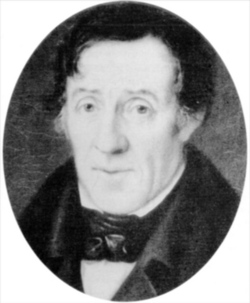The Ulster History Circle and the Ulster-Scots Agency request the pleasure of
your company at the unveiling of a blue plaque JAMES (JEMMY) HOPE at
Mallusk Cemetery, Park Road, Mallusk, Newtownabbey onMonday 24 March 2014 at 11.00 a.m
Refreshments afterwards in Mossley Mill, Newtownabbey BT36 5QA
RSVP to Maud Hamill: Email: maudhamill3@gmail.com Tel: 07766823535
Blue Plaque for ‘A Man of No Property’

The Ulster History Circle today unveilled a blue plaque to United Irishman James (Jemmy) Hope (1764-1847), the Templepatrick weaver, organiser for the movement and a leader in the Battle of Antrim. The event was hosted by Chris Spurr at Mallusk graveyard and the guest speaker was Alderman Frazer Agnew, Mayor of Newtownabbey.
James Hope was born on 25 August 1764 in Roughfort, near Templepatrick, County Antrim. His father, John, a linen-weaver, was a native of Templepatrick. His grandfather, “a Covenanter, a Highlander,” had left Scotland to avoid persecution, as had many such in the Templepatrick area. Hope was apprenticed as a linen weaver, but attended night school in his spare time. Influenced by the American Revolution, he joined the Irish Volunteers, but when they were wound up, he was further influenced by the French Revolution, and when the Society of United Irishmen was formed, he joined in 1795. It was Wolfe Tone who declared: “Our strength shall come from that great respectable class, the men of no property”, and Hope was one such all his days.
Hope quickly established himself as a prominent organiser and was elected to the central committee in Belfast, becoming close to the leaders including Samuel Neilson, Thomas Russell and Henry Joy McCracken. In 1796, he was sent to Dublin to assist the United Irish organisation there to mobilise support among the working classes, and he was successful in establishing several branches throughout the city and especially in the Liberties area. He also travelled to counties in Ulster and Connaught, disseminating literature and organizing localities. Known as ‘the Spartan’, he was described as being observant, discreet, thoughtful, incorruptible and independent. He was married to Rose Mullen, and they had four children.
On the outbreak of the 1798 rebellion in Leinster, Henry Joy McCracken sent Hope on a failed mission to Belfast to brief the leader of the county Down United Irishmen, Rev. William Dickson, with news of the planned rising in Antrim, unaware that Dickson had been arrested only a couple of days before. Hope managed to escape from Belfast in time to take part in the battle of Antrim where he played a skilful and courageous role with his “Spartan Band”, a detachment of weavers and labourers, in covering the retreat of the fleeing rebels after their defeat.
Hope managed to rejoin McCracken and his remaining forces after the battle at their camp on Slemish Mountain, but the camp gradually dispersed, and the dwindling band of insurgents were then forced to go on the run. He avoided capture, but McCracken was captured and executed on 17 July. After the collapse of the general rising, Hope refused to avail of the terms of an amnesty offered by Lord Cornwallis on the grounds that to do so would be “not only a recantation of one’s principles, but a tacit acquiescence in the justice of the punishment which had been inflicted on thousands of my unfortunate associates“.
He lived the years following 1798 on the move between counties Dublin, Meath and Westmeath but was finally forced to flee Dublin following the failure of Robert Emmet’s rebellion in 1803. He returned to the north and evaded the authorities’ attentions in the ensuing repression by securing employment with a sympathetic friend from England. He is today regarded as the most egalitarian and socialist of all the United Irish leadership.
Jemmy Hope died in 1847 and is buried in the Mallusk Cemetery, Newtownabbey.
Chris Spurr, Chairman of the Ulster History Circle, said, “James Hope was a man whose name matched his aspirations. His Scottish forebears gave him the zeal to follow his principles, and he remains a fine embodiment of the ideals of the United Men. The Ulster History Circle is delighted to celebrate the life and achievement of Jemmy Hope, and the Circle would especially like to thank the Ulster-Scots Agency for their support towards this plaque. ”